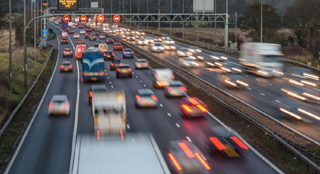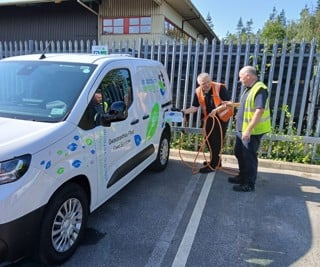Driving for Better Business is launching a new range of free monthly guides for fleet managers to share with their drivers.
The series starts with a guide on vehicle roadworthiness, to help managers, supervisors and everyone else involved to understand their responsibilities.
It covers creating a good practice vehicle roadworthiness policy; ensuring drivers are carrying out competent pre-use checks; making sure any issues are reported and recorded; and the legal responsibilities of both the driver and the operator.
“There are many vehicles on our roads that are simply not roadworthy,” said Mark Cartwright, head of commercial vehicle incident prevention for National Highways.
“Up to a third of all vans will fail an MOT on first inspection – the main failures being on lights, tyres, suspensions or brakes. These are critical to safety, and if they are not given a cursory check before an MOT, are they being checked at all?
“As managers of those who drive for work, we should take steps to ensure our drivers are safe when driving. That includes checking the vehicle is in a safe and roadworthy condition of course.”
To make the monthly guides easy to share with drivers, each topic includes posters that can be printed for noticeboards, and short reminders to be fed to in-cab messaging systems.
The topics covered by the monthly ‘Fleet Focus’ guides include weather conditions, including winter preparation; drug and drink driving; driver fatigue; river distraction; safe loading; and mental health and driver wellbeing.
Each month’s topic sits in a library, allowing anyone to access a bank of resources at any time to help improve driver safety.
“Everything we offer is free of charge and can be downloaded and used as many times as relevant,” said Cartwright. “These will help deliver significant benefits, both for the companies and their employees.”
The Fleet Focus guide is available here.
Driving for Better Business is a free to access National Highways business engagement programme, delivered in partnership with RoadSafe, to help employers reduce work-related road risk, protecting staff who drive or ride for work, and others who they may share the road with.























Login to comment
Comments
No comments have been made yet.